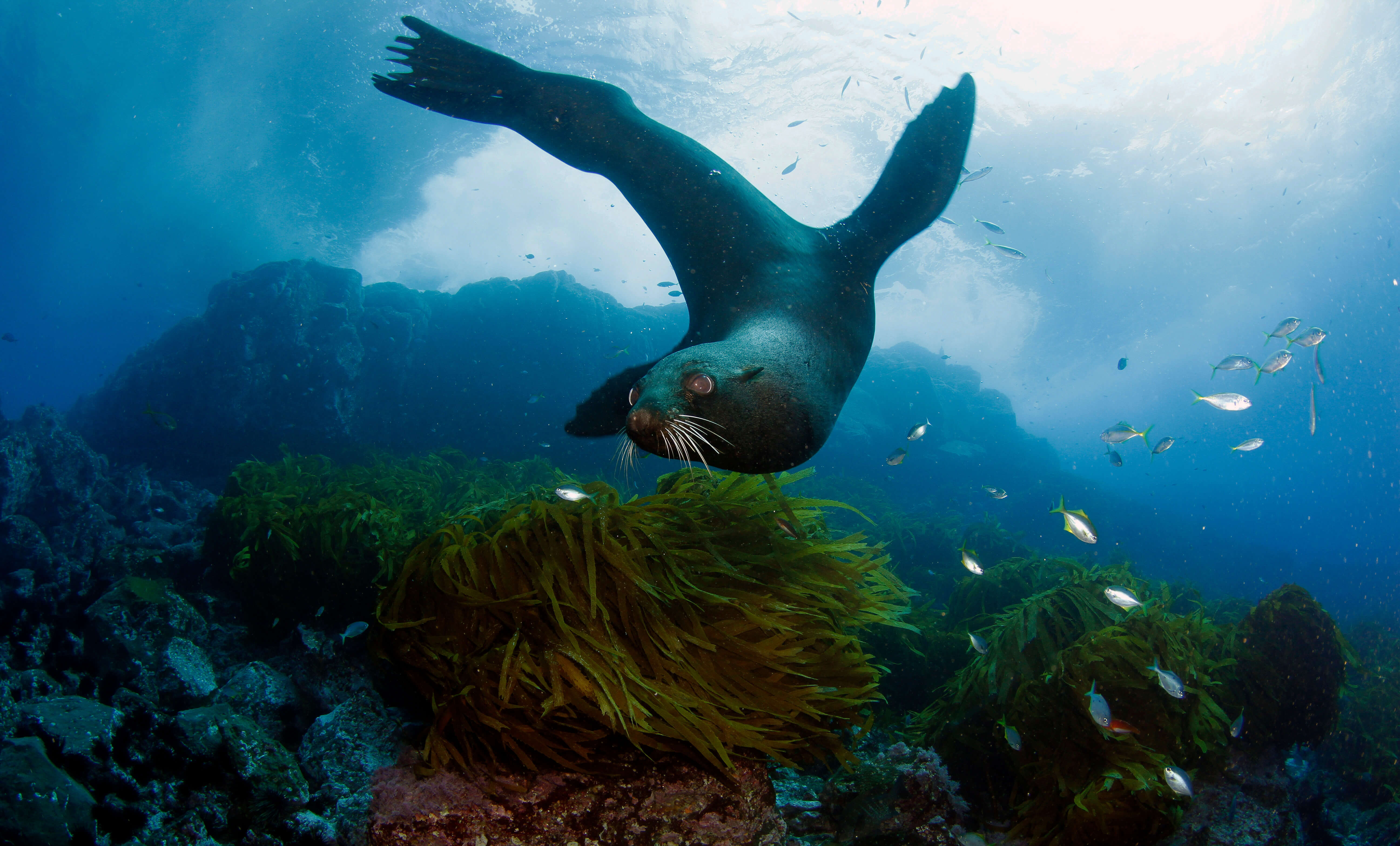Preserving our Vibrant Ocean: During and Post COVID-19

By Antha N. Williams, Bloomberg Philanthropies Environment program lead
The global COVID-19 pandemic has transformed how we view the world around us, reinforcing just how interconnected we are on this planet. We can’t ignore what we’ve learned as we emerge from the COVID-19 crisis and confront a planet under stress.
There’s perhaps no better example of our interconnectedness than the ocean. (In fact, those of us working to protect it often call it a singular ocean rather than “oceans,” because we don’t want to imply any separation). More than three billion people around the world directly depend on the ocean’s ecosystem for food and livelihoods. The ocean also drives our weather patterns, is home to most of all life on earth, and helps absorb some of the worst impacts of climate change, including CO2 and heat. And during a global pandemic that attacks our lungs, I must point out that the ocean cleans our air – providing the oxygen for every other breath we take.
Ensuring a healthy ocean is critical to ensuring better, longer lives for people around the world, so it is surprising that ocean advocacy receives less than 1% of all philanthropic funding and support. At Bloomberg Philanthropies, we know that more must be done and are working hard to protect our oceans and the people who rely on it through our Vibrant Oceans Initiative.
Amid a global pandemic, our Vibrant Oceans partners – Rare, Oceana, Wildlife Conservation Society, and Global Fishing Watch – continue to work tirelessly to help people, communities, and marine ecosystems confront the ongoing threats from the climate crisis, combined with new global challenges posed by COVID-19.
As we mark this year’s World Oceans Day today, I’d like to take a moment to highlight our Vibrant Oceans partners and a few recent initiatives and successes around the world:
- Protecting the health and safety of coastal communities during quarantine: Our partners at Oceana work in key countries to stop illegal fishing, protect fish populations, and keep coastal communities healthy. Their top-notch local talent is advising local governments on quarantine policy for fishing vessels to keep fishers healthy and economies sustained both during the pandemic and in the aftermath.
- Ensuring coral survives the effects of climate change: The Wildlife Conservation Society is studying how the sharp decline in global economic activity is impacting coral reefs – vital marine structures that are vulnerable to the impacts of the growing climate crisis. The insights they collect will help identify actions we can take to conserve and protect coral reefs in the long-term, after the pandemic.
- Supporting small-scale fishers and their communities: As COVID-19 disrupts global supply chains, Rare is empowering small scale fishers – who make up 90% of fishers worldwide – to combat the economic hardship caused by the shutdown of local hotels, restaurants, and communities.
- Keeping up the fight against offshore drilling: Despite lessons made clear by the BP oil spill disaster known as Deepwater Horizon, offshore oil and gas drilling is as dangerous as it was 10 years ago, particularly as President Trump continues his assault on environmental regulations. Oceana remains vigilant in its work to protect U.S waters, organizing local and regional activism along both the Atlantic and Pacific coasts to prevent the expansion of offshore drilling activities.
- Providing real-time data on COVID-19 and the ocean: Global Fishing Watch (GFW) is closely monitoring the effects of the virus on global fishing activity, already observing that decreased demand and COVID-19 lockdowns have caused global commercial fishing activity to fall by around 1 million hours, a 6.5% decline. GFW ensures its data is available to everyone on their platform and through the Bloomberg Terminal – findings that can help shape national and local policy to protect our oceans from the impacts of climate change and overfishing.
In the face of COVID-19, our Vibrant Oceans Initiative and world-class partners are continuing their meaningful work across 10 priority countries: Australia, the Bahamas, Chile, Fiji, French Polynesia, Indonesia, Peru, the Philippines, Tanzania, and the United States. With their expertise, and through joint projects with stellar partners like OceanX, we’ll continue to use our data-first mission to advance evidence-based conservation practices and sustainable resource management for a post-pandemic world.
Bloomberg Philanthropies is thankful to be part of the ongoing efforts to protect our ocean – and on this World Oceans Day, we are more committed than ever to protecting marine areas, preserving our corals, conserving fish populations, and strengthening the blue economy so that people and our oceans can thrive.